MercoPress. South Atlantic News Agency
Latin America
-
Wednesday, February 17th 2010 - 01:34 UTC
Rebuilding quake-shocked Haiti could soar to 14 billion USD says IDB
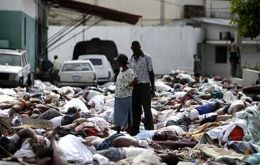
The cost of rebuilding Haiti’s homes, schools, roads and other infrastructure could soar to nearly 14 billion US dollars according to a new study by economists at the Inter-American Development Bank.
-
Monday, February 15th 2010 - 20:15 UTC
Chilean registered marriages almost identical to number of divorces

Marriage numbers have fallen 50% in Chile during the past 20 years, according to data made public last week by the Civil Statistical Registry.
-
Monday, February 15th 2010 - 06:33 UTC
Chilean mint house chops heads for circulating 50-pesos “collection” coins

Heads are rolling at the Chilean mint after a coin went into circulation which mangled the country's name. The 50-peso coins - worth about 6p - were issued in 2008, but no-one noticed they read “Chiie” rather than “Chile” until late last year.
-
Saturday, February 13th 2010 - 07:54 UTC
Brazil and Chile’s president elect support Insulza as OAS chief

Brazil’s Foreign Secretary Celso Amorim said that The Washington Post criticisms of the Organization of American States, OAS, Secretary General Jose Miguel Insulza are “totally without foundation” and reiterated Brazil’s support for his re-election next month.
-
Saturday, February 13th 2010 - 07:30 UTC
Chevron and Repsol will lead development of Orinoco tar sands

Chevron and Repsol YPF SA will lead development of two 15 billion US dollars projects to pump and refine Venezuelan crude after winning the country’s first oil auction since President Hugo Chavez took office 11 years ago.
-
Saturday, February 13th 2010 - 07:12 UTC
China/Peru free trade agreement becomes effective March first
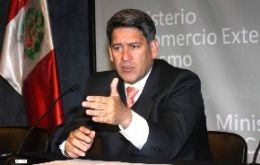
The free trade agreement between Peru and China will become effective next March first, following the green light from Beijing’s all powerful Council of State, said the Peruvian Foreign Trade and Tourism ministry in an official release.
-
Thursday, February 11th 2010 - 18:11 UTC
Growing interest of Indian companies in investing in Latinamerica
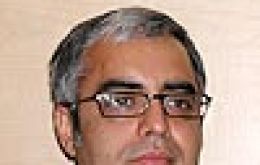
More Indian companies are looking to do business in Latinamerica as they seek exposure to growing markets and a more secure investment destination, according to The Wall Street Journal.
-
Wednesday, February 10th 2010 - 04:36 UTC
Technocrats and academics in Chilean president elect cabinet
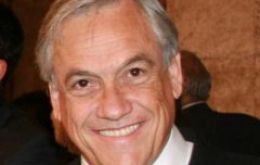
Chilean president-elect Sebastian Piñera presented on Tuesday a cabinet of business leaders and academics, with economist Felipe Larrain as Finance minister and Juan Andres Fontaine as Economy minister.
-
Wednesday, February 10th 2010 - 00:12 UTC
Former Colombian defence minister closer to becoming successor of Uribe

Colombia’s former Defence minister Juan Manuel Santos said that he will be the presidential candidate for the ruling (Unity) party in the coming May 30 election if President Alvaro Uribe is barred from bidding for a second consecutive re-election.
-
Tuesday, February 9th 2010 - 23:58 UTC
Unasur pledges 300 m USD for Haiti; sees Ecuador and Colombia edging closer
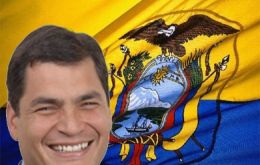
The Union of South American Nations, Unasur, leaders agreed Tuesday to provide 300 million US dollars in aid to Haiti at a summit in Ecuador which left aside regional disputes that have undermined relations since 2008.
